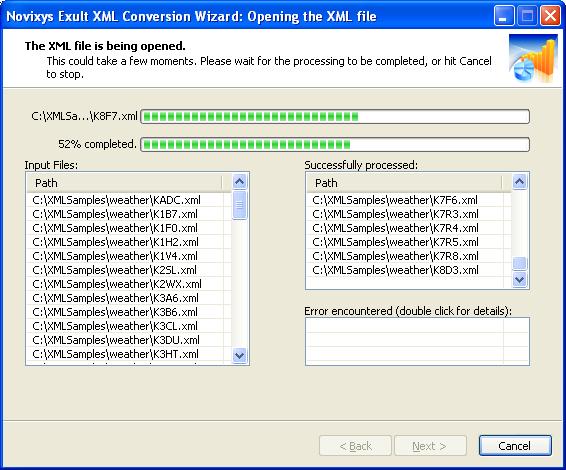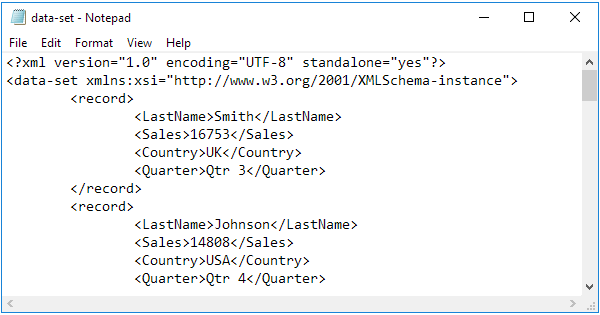
We found it to be great in working with large XML files, you should check it out as well. You will actually be surprised to see how accurate it is.Īnother useful tool that we discovered is a tool which uses Excel to convert XML to CSV format. Choose From Other Sources – From XML Data Import.Īfter that what Microsoft Excel will do, is to use the internal structure of the XML file to accurately import it into rows and columns in the spreadsheet.
#XML TO SPREADSHEET CONVERTER HOW TO#
Now, we are going to show you how to import XML format into Microsoft Excel.Īll you need to do is go to the Data section. We have already shown you how to import CSV into Excel, and vice versa.

Unlike PDF, which has to be converted into Excel to be able to use the data (you can convert it with Cometdocs), XML and CSV can be imported into Excel fairly easy.
#XML TO SPREADSHEET CONVERTER SOFTWARE#
However, if we want to perform some kind of statistical analysis on either format we need to import them into software for data analysis.Īs you might have guessed, one of our favorite software for data cleaning, manipulation and analysis is Microsoft Excel. Both of these formats are readable by many software and services, and allow for easy further manipulation. Standard Archimate 3 XML Schemas for XML import/export format.XML format, along with CSV are some of the most commonly used formats when sharing, importing and exporting data between services.Step 2: click the Convert button, then a spreadsheet file will be displayed in the Output Box. HTML equivalent of 'application-business-functions.md', generated using the oXygen XML Editor 19.0. How to convert an XML file to a spreadsheet structure Step 1: load the XML file: You can click the Open File button to select your XML file from your computer or the By URL button to specify a link that points to the XML file that can be accessed on internet.Markdown 'facts', generated from 'application-business-functions.xml'.Archi model, without diagrams, generated by importing 'application-business-functions-generated.xml' into Archi.application-business-functions-generated.archimate:.This XML file was manually formatted after generation to make it easier to read.XML generated from 'application-business-functions.xlsx'.application-business-functions-generated.xml.This spreadsheet was manually formatted after generation to make it easier to read.Archi model data in Excel, converted from 'application-business-functions.xml'.XML export of 'application-business-functions.archimate'.application-business-functions.archimate:.Usage: python archi-xml-to-markdown.py \ \.Usage: python archi-excel-to-xml.py \ \.Usage: python archi-xml-to-excel.py \ \.Note that the scripts use the 'pandas' library, which comes bundled if you use the 'Anaconda' Python distribution. Sometimes it can be hard to know if you've reviewed all of the information when looking at a visual model spread over multiple diagrams. That is to say, in converts the Archi model into a non-visual document with tables of 'facts' that can be used as a checklist for checking all of the information in the model. The third script converts Archi XML into Markdown.


DescriptionĪrchi ( ) is an open-source Archimate modelling tool.

You might find some value in the scripts described below. However, if you would prefer to use a single Excel file rather than 3 CSV files, then For many people, that will be more convenient than the scripts described below. The Archi tool has a facility to export a model to a set of 3 CSV files, and to create a new model based XML Excel conversion scripts for 'Archi' Archimate models.


 0 kommentar(er)
0 kommentar(er)
